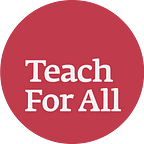The Fact of My Feelings: Reflections on War & Peace
By Inesa Zohrabyan, Arteni, Armenia
After 2020’s Armenia-Azerbaijan war, everyday things that I used to do became harder, even reading a book.
Recently, I opened a book written by William Saroyan, an Armenian-American novelist, called The Human Tragedy. As I was thinking about the opening of this article, a passage from the book came to my mind: “My enemy is not a human being, because no human being can be my enemy. Whoever this person is, whatever color he is, no matter how wrong he is in his beliefs, he is my friend and not my enemy. My struggle is not against man, but against the beast in him, which I want to destroy in me first of all.”
Even though I have the opportunity to write about the political and historical aspects of this conflict, I’m not going to do that, because that’s not how the war feels to me right now. For that, you can search Google or watch many thorough explanations on YouTube. What I want to write about is the fact of my feelings.
As a member of Teach For All’s Student Leader Advisory Council, my main concerns before the war were based on educational problems. But when there is no peace, and you can’t pursue or enjoy your basic human rights, you can’t focus on education — or, the opposite happens and you start to think only about the failures of education. But what if we could just stop for a minute, in a neutral way, and think about quality education as a key to peace, love, and kindness? These are not just words — thinking is powerful. And education is the medicine that can cure the beast within that leads us to war. I don’t just believe that, I know it — I feel it.
But what kind of education?
An education based on love, because love is powerful. Love is the real changemaker.
I believe in the power of education because I see many countries that are developed, and those countries are always the ones that pay attention to education. We can shape our future in a family, in a kindergarten, in a classroom, in an academy, that’s how it works for me. Education should be of such high quality that students finish their academic years not as “survivors,” but as strong individuals, problem solvers, curious people, active citizens for this changing world.
Education must also teach us the value of our human rights. I study law at the university, and after the 44-day war it was really hard for me to believe in the power of human rights, but I came to understand that the moment we stop believing, human rights lose their power. We need to believe so that they can be real and be implemented, because human rights are vital, and education based on this understanding is medicine.
Today the world recognizes the International Day of Peace.
I just want peace that is natural, daily, unnoticed.
Mentioning the word peace in our prayers says a lot. I wish that any problems we have related to peace would be at an individual level, like inner peace, but not as a country. I wish that peace would be such a common, normal thing as just breathing or loving trees.
After facing war, my advice is not to look for war where there is no war, just appreciate what you have right now and be grateful for that. Keep your loved ones close and love the simple humane things that we have.
Celebrate yourself, celebrate your own victories, and maybe one day we will be victorious in creating peace at the country level.
